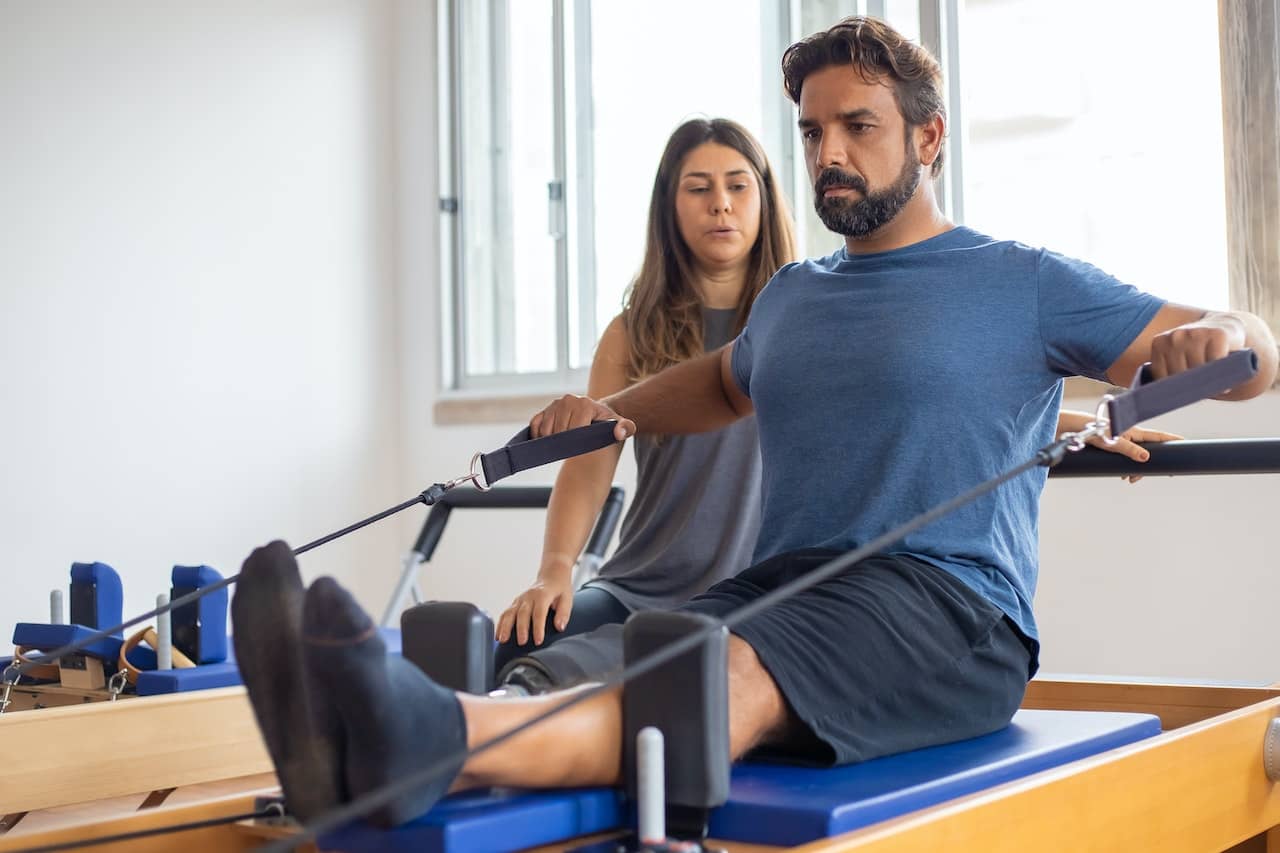Spinal cord injuries can be life-altering, impacting not just physical health but also emotional well-being. If you or a loved one has experienced such an injury, you might be wondering, “What therapies are available following a spinal cord injury?” This article aims to provide you with a comprehensive understanding of common and alternative therapies for spinal cord injuries, offering a beacon of hope on the path to recovery with a guideline on how to start your serious injury claim with us at National Claims.
Common Therapies for Spinal Cord Injuries
Recovery from a spinal cord injury can be a daunting journey, but it is not devoid of hope. Several common therapies have proven effective in helping individuals regain some degree of functionality and improve their overall quality of life.
Physical Therapy
Physical therapy plays a pivotal role in the rehabilitation process after a spinal cord injury. Under the guidance of skilled therapists, individuals can work on strengthening their muscles, improving mobility, and enhancing their overall physical condition. The ultimate goal is to regain as much independence as possible.
Occupational Therapy
Occupational therapy focuses on helping individuals with spinal cord injuries regain the skills needed for daily life activities. Therapists work closely with patients to adapt to any limitations and learn techniques to perform everyday tasks, such as dressing, cooking, and bathing, more independently.
Aquatic Therapy
Water provides a buoyant environment that can ease the strain on the body while promoting movement. Aquatic therapy is particularly beneficial for individuals with spinal cord injuries, as it allows them to work on strength, balance, and mobility in a supportive and low-impact setting.
Assistive Devices
Technological advancements have led to the development of a wide range of assistive devices designed to enhance the lives of those with spinal cord injuries. These include wheelchairs, orthotic devices, and adaptive tools that empower individuals to regain their independence and engage in various activities.
Medication and Pain Management
Managing pain and other associated health issues is a crucial aspect of spinal cord injury rehabilitation. Medications and pain management techniques are employed to alleviate discomfort, reduce muscle spasms, and enhance overall well-being.
Alternative Therapies for Spinal Cord Injuries
While conventional therapies offer significant benefits, some individuals seek alternative approaches to complement their recovery journey. It’s important to note that alternative therapies should be explored in consultation with healthcare professionals to ensure they are safe and effective for specific cases.
Acupuncture
Acupuncture is an ancient Chinese therapy that involves inserting thin needles into specific points on the body to stimulate energy flow. Some individuals with spinal cord injuries have reported pain relief, improved circulation, and enhanced overall well-being as a result of acupuncture.
Hyperbaric Oxygen Therapy (HBOT)
HBOT involves breathing pure oxygen in a pressurised chamber. Proponents of HBOT suggest that it can promote tissue healing and reduce inflammation, potentially aiding in spinal cord injury recovery. However, research in this area is ongoing.
Stem Cell Therapy
Stem cell therapy is a cutting-edge approach that holds promise for spinal cord injury recovery. It involves the transplantation of stem cells into the injured area with the aim of repairing damaged tissue and promoting regeneration. While the results are still being studied, this therapy offers hope for significant improvements in the future.
Massage Therapy
Massage therapy can provide relaxation, pain relief, and improved circulation for individuals with spinal cord injuries. It can also help alleviate muscle spasms and increase overall comfort.
Chiropractic Care
Chiropractic care focuses on spinal alignment and nervous system health. Some individuals find relief from pain and improved mobility through chiropractic adjustments, although it’s important to consult with a healthcare professional before pursuing this therapy.

Making a Serious Injury Claim with National Claims
We are here to guide you through the process of making a serious injury claim with National Claims. When life throws unexpected challenges our way, it’s reassuring to know that there are organisations like National Claims dedicated to helping individuals navigate the complexities of insurance and compensation.
Getting Started with Your Claim
If you or a loved one has experienced a spinal cord injury, the first step towards seeking compensation is reaching out to National Claims. We understand the unique challenges faced by those with spinal cord injuries and are well-equipped to provide the support and guidance you need.
Initial Consultation
The journey begins with an initial consultation. During this conversation, you’ll have the opportunity to share the details of the accident or incident that led to the spinal cord injury. Our experienced team will listen carefully to your story and assess the circumstances to determine the viability of your claim.
Documentation and Evidence Gathering
To build a strong case, it’s essential to gather all relevant documentation and evidence. This may include medical records, accident reports, witness statements, and any other documents related to your injury. National Claims will work closely with you to ensure that nothing is overlooked.
Legal Representation
Once your claim is deemed viable, National Claims will provide you with legal representation. Having a dedicated legal team by your side is invaluable during the claims process. They will work tirelessly to advocate for your rights and ensure that you receive the compensation you deserve.
Navigating the Claims Process
The claims process can be intricate, involving negotiations with insurance companies and legal proceedings. National Claims will handle all aspects of your claim, allowing you to focus on your recovery.
Legal Proceedings
In some cases, legal action may be necessary to ensure fair compensation. We have a panel of experienced solicitors ready to represent you in court if required. Rest assured that they will fight tirelessly to achieve a favourable outcome.
Conclusion
A spinal cord injury is a life-altering event that demands comprehensive support, not just in terms of medical care but also in pursuing financial compensation. We are your trusted partner in this journey, offering the expertise and dedication needed to make your serious injury claim a success.
Remember that your path to recovery should not be burdened by the stress of navigating insurance claims and legal complexities. With National Claims by your side, you can focus on healing and rebuilding your life while they handle the intricacies of your claim.
If you find yourself in the challenging position of dealing with a spinal cord injury, know that there is hope and support available. Reach out to National Claims today, and let us guide you towards the compensation you rightfully deserve. Your journey to recovery begins with a single step, and National Claims is here to walk that path with you.
Contact us today to get started on your claim and speak to one of our friendly claims specialists.
Click below to see why we are one of the most trusted claims management companies in the UK.

We’re proud of our excellent customer reviews
We thrive on delivering exceptional service and ensuring our clients’ satisfaction. Don’t just take our word for it. Check out some of our independent reviews to see what our clients have to say.
Excellent

This firm is excellent, they sorted out my car pay out and injury claim very fast, they always communicate with you all the time.

My accident case was dealt with confidence and with great result of the outcome, especially James kept me informed all the time.

I was very impressed at the way my inquiry was treated. I was listened to attentively and everything I needed to know was explained to me.






